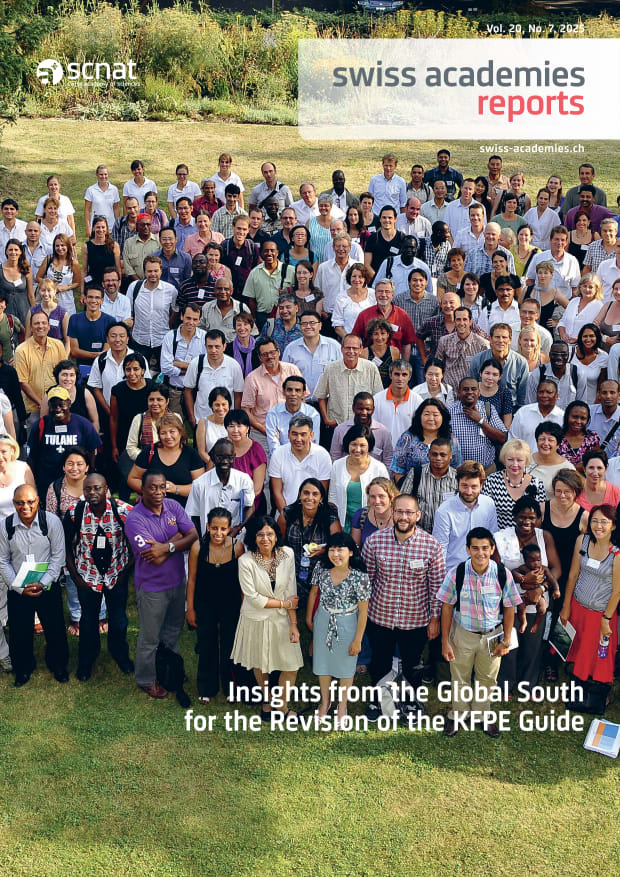All Publications
Swiss Young Academy SYA
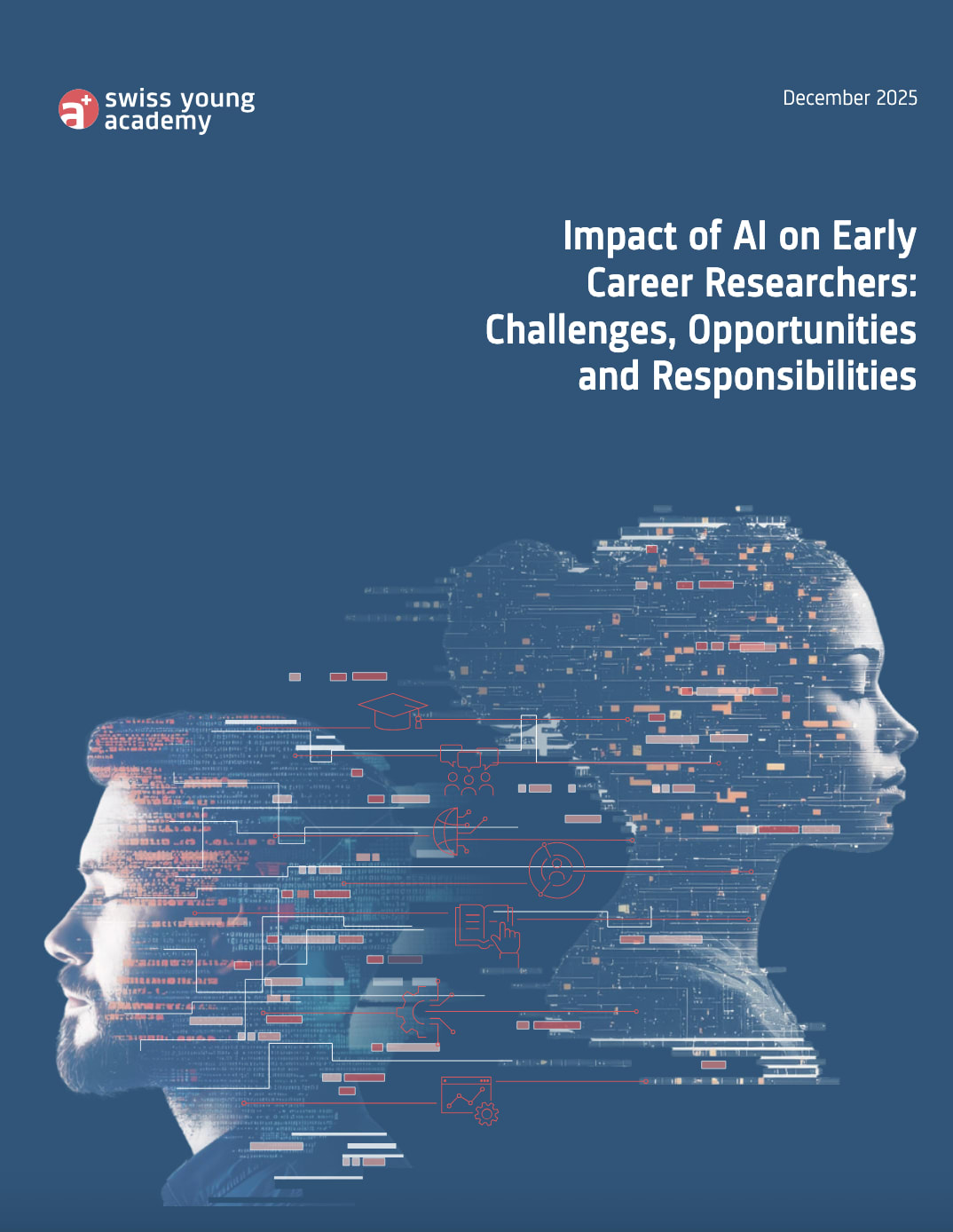
Impact of AI on Early Career Researchers: Challenges, Opportunities and Responsibilities
Artificial Intelligence (AI) is rapidly transforming science and is therefore profoundly reshaping the work of Early Career Researchers. Against this backdrop, the publication Impact of AI on Early Career Researchers: Challenges, Opportunities, and Responsibilities, developed by members of the Swiss Young Academy, namely Emmanuel Senft, Sabrina H. Kessler, Pamela Delgado, Devi Bühler, and Alexandre Bovet, offers a timely interdisciplinary reflection on these changes. The booklet examines both the opportunities and risks of AI across five key areas – research, teaching, science communication, policymaking, and sustainability – while also addressing critical issues such as research integrity, data privacy, misinformation, governance, and environmental impact. It further highlights the responsibilities of Early Career Researchers and higher education institutions in promoting AI literacy, transparency, ethical standards, and responsible use of AI in science.
Swiss Young Academy SYA
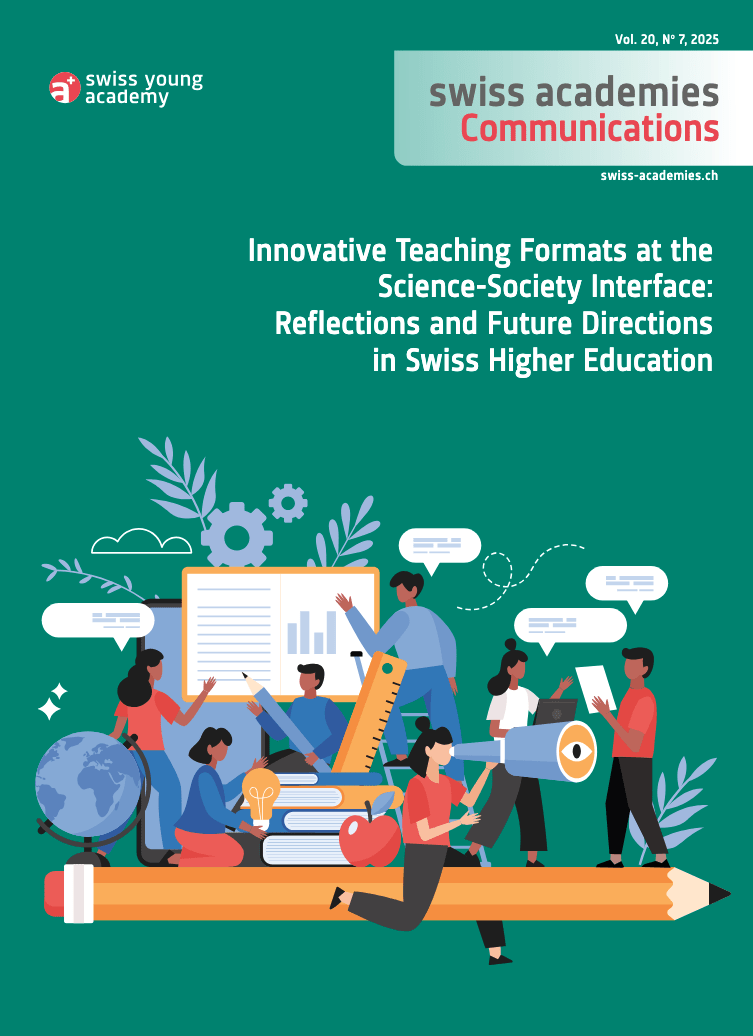
Innovative Teaching Formats at the Science-Society Interface: Reflections and Future Directions in Swiss Higher Education
Science-society dialogue is crucial for addressing pressing societal challenges. One important avenue for strengthening this link, in an inter- and transdisciplinary perspective, is teaching formats that encourage students to engage in the public sphere. However, an illustrative collection of best practices in Swiss higher education has been lacking so far. This practice-driven report draws on a non-exhaustive stocktake of existing courses in Switzerland and participatory workshops among lecturers. It features illustrative examples from Swiss higher education institutions and introduces a new typology of science-society teaching formats, offering educators a structured way to design and analyze courses across six dimensions. In addition, the publication discusses both the opportunities and challenges of implementing such teaching formats. To further advance science-society education, the report identifies three priority areas for action.
Swiss Academy of Sciences SCNAT
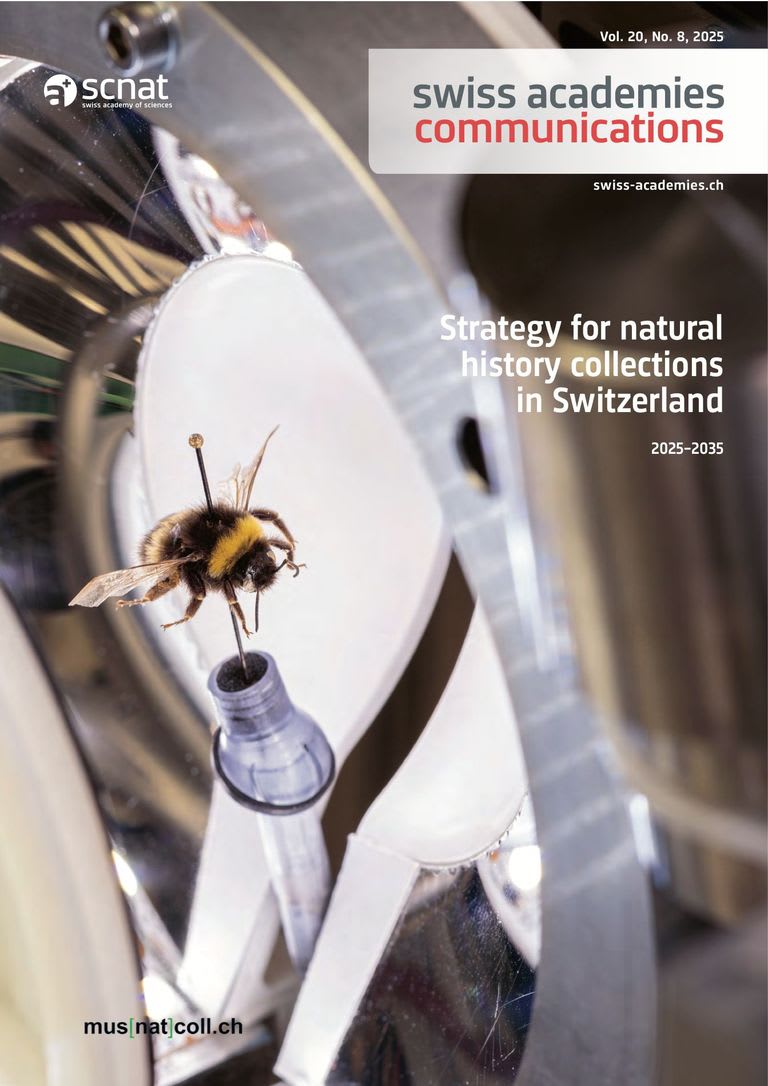
Strategy for natural history collections in Switzerland
Thirty-seven institutions, take a decisive step towards unlocking the full potential of natural history collections in Switzerland. Together, they publish and endorse a strategy based on 6 pillars and 52 key activities to better preserve collections, ensure their accessibility and promote their use for science and society.
Swiss Academies of Arts and Sciences a+
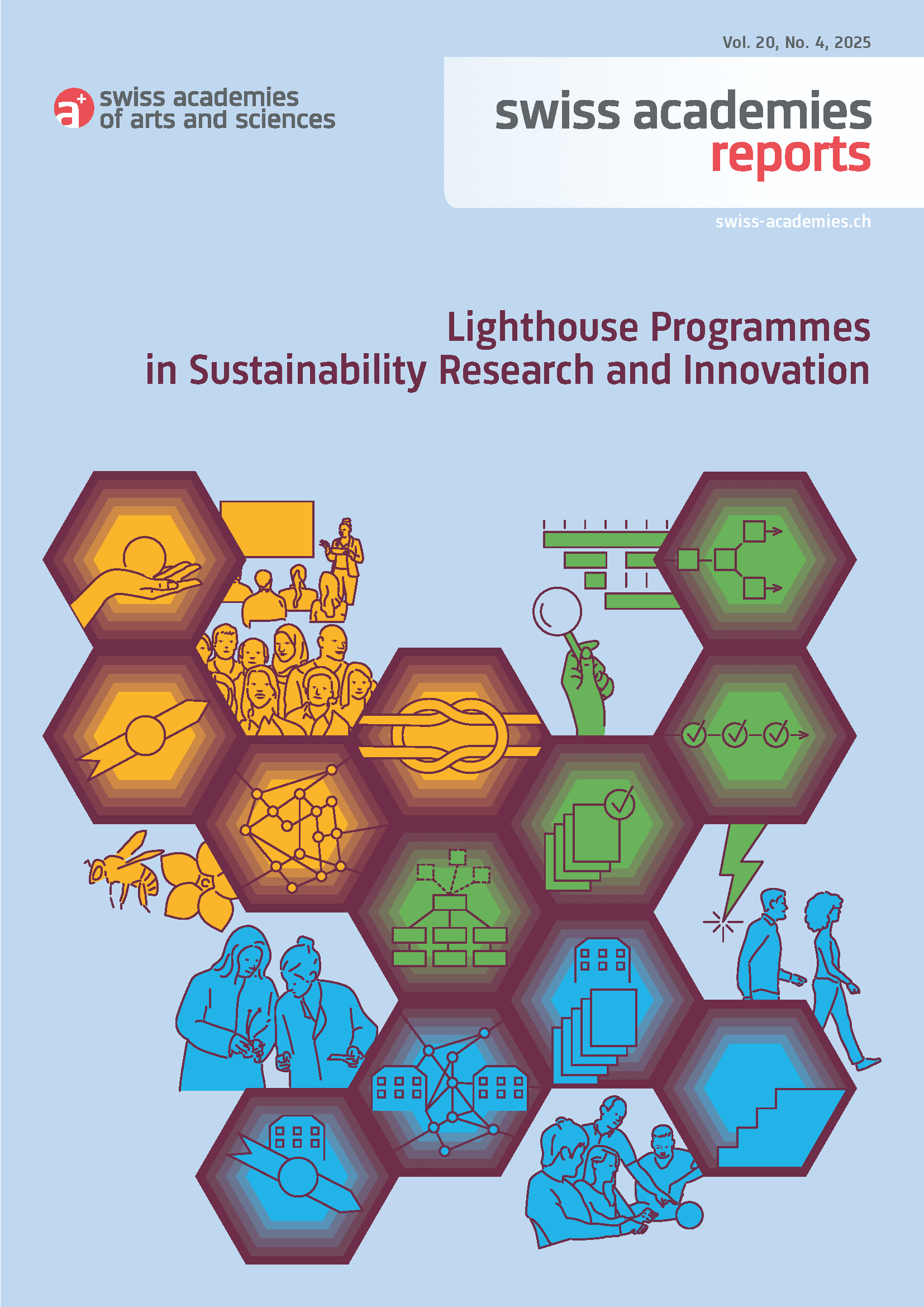
Lighthouse Programmes in Sustainability Research and Innovation
Wuelser G, Edwards P (2025)
Lighthouse Programmes in Sustainability Research and Innovation
Swiss Academies Reports 20 (4)Swiss Academies of Arts and Sciences a+

Ethical guidelines for animal experiments
The Swiss Animal Welfare Act permits the use of animals for certain scientific purposes; at the same time, however, it requires that the dignity of animals be respected and their welfare protected. For researchers, reconciling these various societal interests can be challenging. The ethical guidelines for animal experiments (2025) are designed to clarify the margin of discretion left by the legislation and to encourage researchers to reflect on the handling of animals in their experiments. The decisive factors for updating the previous version from 2005 were new scientific knowledge and research methods on the one hand, as well as changes in the legal framework on the other.
Swiss Young Academy SYA
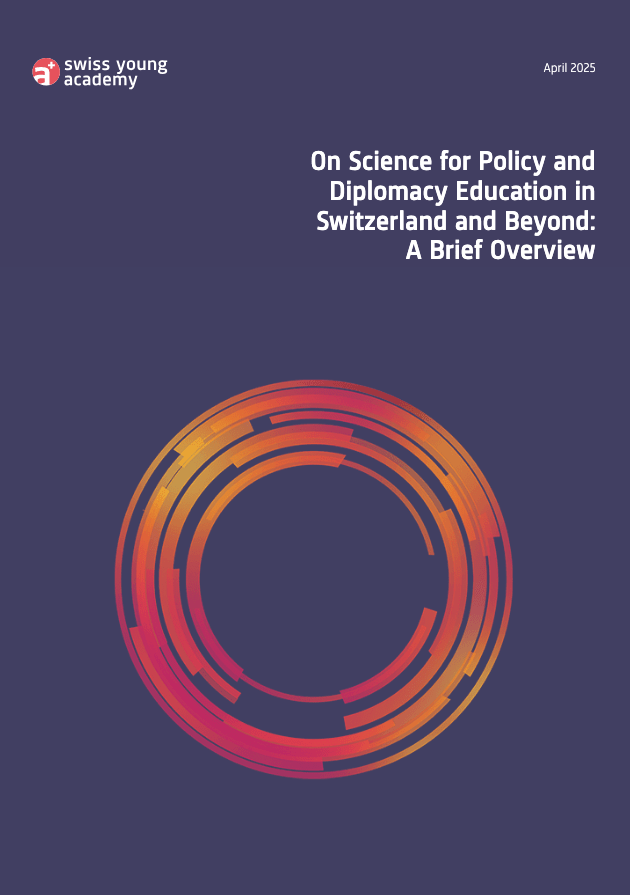
On Science for Policy and Diplomacy Education in Switzerland and Beyond: A Brief Overview
Some of the most pressing challenges worldwide, from global pandemics to the climate and environmental crisis, require efforts at the interface of science, policy, and diplomacy. To this end, skills development for scientists engaged with science for policy and diplomacy is increasingly important, yet relevant educational offers in Switzerland and worldwide remain limited. The Swiss Young Network for Science Policy and Diplomacy, in collaboration with the Geneva Science-Policy Interface and the Franxini Project of Reatch, considered educational offers in science for policy and diplomacy available for early-career academics, including courses, workshops, and webinars in Switzerland, across Europe, and beyond.
Swiss Academy of Sciences SCNAT
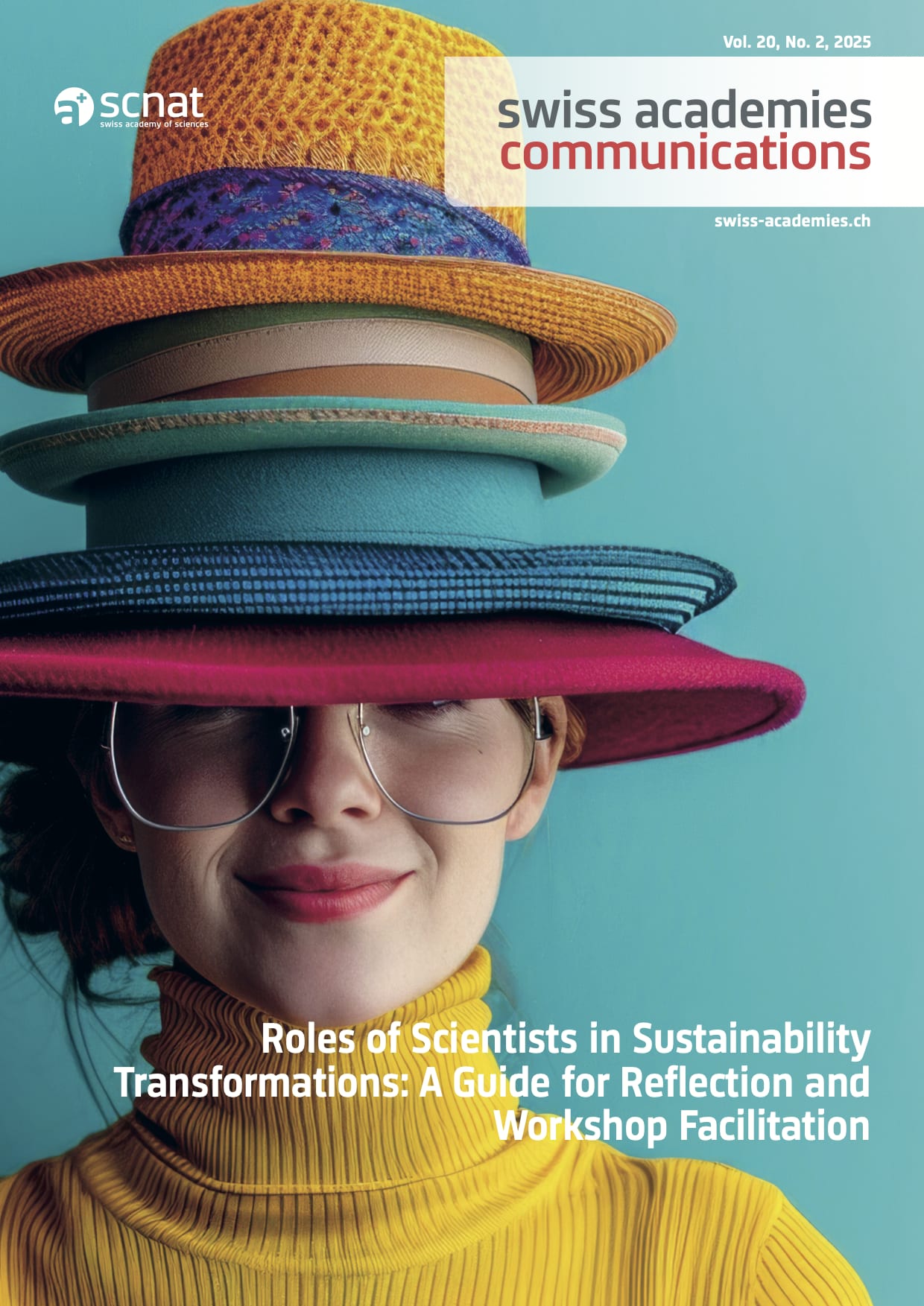
Roles of Scientists in Sustainability Transformations: A Guide for Reflection and Workshop Facilitation
Scientists, scientific experts, and knowledge brokers often find themselves in situations where they need to play new roles in society or are criticised for positioning themselves at the interface between science and other societal fields of action. The present guide aims to stimulate reflections on, and discussions of, various different roles that scientists perform.

